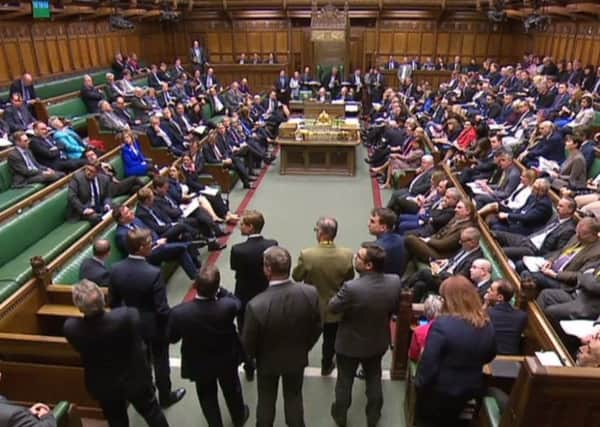Signs that MPs’ handling of Brexit is risk to democracy already exist – Electoral Reform Society


New research from the Hansard Society should set alarm bells ringing in Westminster.
Analysis for the organisation shows we face a democratic crisis because of our broken politics. Almost two-thirds of people of think our political system needs dramatic change, and 75 per cent of people say the main political parties are so divided within themselves that they cannot serve the best interests of the country.
Advertisement
Hide AdAdvertisement
Hide AdWhen trust in politics is so low, voters can turn to dangerous solutions. Over half those asked think Britain needs “a strong ruler willing to break the rules” as a way to solve the current political deadlock – a worrying challenge to our democratic norms.
This growing sense of dissatisfaction towards Westminster could take a toxic turn if it is not dealt with now.
The desire for strong authoritarian politics is a symptom of the breakdown in Parliament. There’s been a total failure of imagination when it comes to finding constructive solutions through the Brexit deadlock.
Even the method MPs used to find a way forward – a series of binary ‘Aye’ or ‘No’ indicative votes fell victim to the adversarial mentality of Parliament. They could have used a preferential system – ranking the options – similar to what Scots are used to using for local elections. Meanwhile, last month saw another hereditary aristocrat join the House of Lords for life – while MPs debate our democratic future.
It has taken nearly three years for parties to start talking to each other about Brexit – yet even these last-ditch talks have been met with hostility as members from across the Commons continue to dig their heels in. The apparent phobia to real dialogue again stems from an out-dated, us-versus-them mentality.
People look to Parliament and see polarised parties turning inwards rather than building bridges.
A more consensus-based system – with seats in Parliament actually matching how people vote, as in Holyrood – has to be part of the solution. Voters are tired of the unproductive adversarialism that we see in the so-called ‘Mother of all Parliaments’.
But this overhaul of our politics needs to be seen at all levels – the local and the national. It is positive that the Scottish Government has been consulting on how to revive local democracy, but it will take bold, innovative thinking to reconnect people with institutions of government.
Advertisement
Hide AdAdvertisement
Hide AdA move towards a more representative, participatory politics can help heal the toxic divides that blight our politics and reconnect politicians with the lives of those who their decisions affect – something that can begin to restore faith in democracy.
Inaction is simply not an option. Westminster is falling apart – and only a democratic overhaul can fix this.
Willie Sullivan is senior director of ERS Scotland and Campaigns, Electoral Reform Society